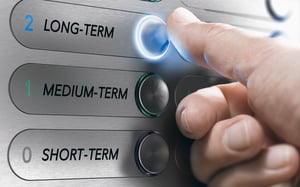 Chapter 7 bankruptcy cases typically last three to four months and do not require that the debtor make any payments to their creditors. On the other hand, chapter 13 cases last three to five years and do require that the debtor make monthly payments to their creditors before receiving a discharge of their remaining debt once their case is finished.
Chapter 7 bankruptcy cases typically last three to four months and do not require that the debtor make any payments to their creditors. On the other hand, chapter 13 cases last three to five years and do require that the debtor make monthly payments to their creditors before receiving a discharge of their remaining debt once their case is finished.
Which Minnesota Bankruptcy is Best for Me?
Reasons that a debtor would be in a chapter 13 case, rather than a chapter 7 case, include the fact that they make too much money to qualify for a chapter 7, they have lots of property that they wish to avoid having taken from them to pay creditors in a chapter 7, or they engaged in certain wrongful financial transactions (i.e. giving away a bunch of money to a relative right before filing bankruptcy) the consequences of which are often less severe in a chapter 13 case.
Chapter 13 Payment Plans in MN
Many people considering filing for a chapter 13 bankruptcy wonder how long their bankruptcy case will last. For debtors who earn more income than the median income in the State of Minnesota, for a household of their size, they will need to be in a 60 month repayment plan. However, for those who earn less than the median income, the debtor has the option of being in a repayment plan for as little as three years, but can elect a repayment plan for up to 60 months if they so choose.
All repayment plans must be approved by the court (aka confirmed), and must pay enough money to creditors during the life of plan to meet the creditors’ “best interests.” Therefore, in order to make the monthly payments more affordable, under-median debtors often opt to stretch the plan out longer than 36 months.
Can I Repay My Debt Early in a Minnesota Bankruptcy?
Another question that is often asked is whether a debtor can finish their plan early. The answer is yes, in some cases, but usually not. It’s natural for a person think that if they win the lottery, get an inheritance, or just start making a lot more money while in the bankruptcy, that they can just go ahead and use the extra money to pay off the total amount they pledged to pay creditors in their plan and be done. However, by filing a repayment plan, the debtor is promising to pay of their entire disposable monthly income (amount left over after their expenses are deducted from their income) and are committing to certain amount of time to be in the repayment plan before receiving their discharge.
In the event the debtor suddenly finds themselves in much better financial circumstances during the plan then when they originally filed the plan, it just means they have more disposable income to share with their creditors. In such an event, what will likely happen is that the debtor will be required to file a modified repayment plan that provides a sufficient amount of the newfound wealth with the creditors to obtain court approval.
There are, however, a couple of ways to finish a chapter 13 bankruptcy case earlier than the debtor’s repayment plan provides. First, if the debtor becomes able to do so, the debtor can simply pay off the entire amount of debt owed to the creditors. In this circumstance, the bankruptcy, and subsequent discharge, obviously become unnecessary, as the debtor can simply fully afford to pay off the creditors. In such case, the debtor will likely just voluntarily dismiss their chapter 13 case and pay off the debt.
HARDSHIP dISCHARGE
A second way to get out of a chapter 13 bankruptcy early, is through what’s called a “hardship discharge.” A court will grant the debtor a hardship discharge before fully completing their confirmed repayment plan if the debtor experiences an inability to complete the plan due to circumstances not under their control and the debtor cannot practicably modify the plan to accommodate the changed financial circumstances (i.e. they become permanently unable to work due to a disability and can no longer afford to make payments).
another requirement for a debtor to qualify for a hardship discharge is that the creditors must have already received at least as much money under the plan as they would have received had the debtor hypothetically filed a chapter 7 bankruptcy case. The debtor must make a motion asking for the hardship discharge from the court which, if granted, would allow the debtor to receive an immediate discharge of their debts without having to complete their repayment plan.
CALL NOW FOR A FREE STRATEGY SESSION FROM A MN BANKRUPTCY LAWYER AT LIFEBACK LAW FIRM
This is a generalized explanation of the factors that determine precisely how long a person’s chapter 13 case may last and is not intended to be comprehensive. A person considering filing for bankruptcy should speak with an experienced bankruptcy attorney to determine whether they would be better suited in a chapter 13 or a chapter 7 bankruptcy case, and to more specifically determine how the particular circumstances of their case will affect the outcome, and duration, of their case. See us at LifeBackLaw.com!


